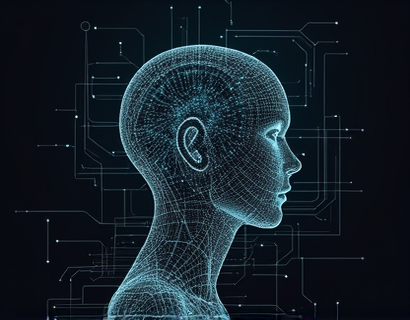Maximize Productivity with Intelligent AI Task Management
In today's fast-paced world, the ability to manage tasks efficiently is crucial for both personal and professional success. The integration of advanced AI technology into task management systems offers a revolutionary approach to enhancing productivity. These intelligent AI agents are designed to streamline and automate various tasks, allowing individuals and businesses to focus on high-priority activities and achieve greater efficiency. This article delves into the benefits and functionalities of intelligent AI task management, exploring how it can redefine productivity and elevate both personal and professional efficiency.
Understanding Intelligent AI Task Management
Intelligent AI task management refers to the use of sophisticated artificial intelligence algorithms to manage and prioritize tasks. These systems leverage machine learning and natural language processing to understand and adapt to user preferences and workflows. Unlike traditional task management tools, AI-driven systems can predict task urgency, suggest optimal completion times, and even anticipate future tasks based on historical data. This level of intelligence ensures that users are always working on the most critical tasks, thereby maximizing their productivity.
Key Features of AI Task Management Systems
AI task management systems come equipped with a range of features that set them apart from conventional tools. Some of the key features include:
- Automated Task Creation: AI can generate tasks based on emails, calendar events, and other inputs, reducing the need for manual entry.
- Smart Prioritization: The system analyzes task importance and deadlines to prioritize tasks effectively, ensuring that urgent and critical tasks are addressed first.
- Contextual Reminders: AI agents can send reminders based on context, such as location or current activity, to ensure tasks are completed at the most opportune moments.
- Predictive Analytics: By analyzing past behavior, AI can predict future tasks and prepare accordingly, reducing the time spent on planning.
- Integration with Other Tools: Seamless integration with calendars, email, and other productivity tools enhances the overall workflow.
Benefits for Personal Productivity
For individuals, intelligent AI task management offers numerous benefits that can significantly enhance personal productivity. Some of these benefits include:
Enhanced Time Management: By automating routine tasks and prioritizing effectively, AI agents help users manage their time more efficiently. This allows for more leisure time and reduces stress.
Improved Focus: With AI handling the organization and prioritization of tasks, individuals can focus on high-value activities without the distraction of managing their to-do lists.
Better Goal Achievement: AI can help set and track goals by breaking them down into manageable tasks and monitoring progress, providing a clear path to achieving personal objectives.
Reduced Overwhelm: By keeping track of multiple tasks and deadlines, AI agents alleviate the feeling of being overwhelmed, making it easier to tackle daily responsibilities.
Benefits for Professional Productivity
In a business setting, the advantages of AI task management are equally profound. Professionals can leverage these systems to:
Increase Efficiency: AI can automate repetitive tasks such as data entry, scheduling, and follow-ups, freeing up time for more strategic work.
Enhance Collaboration: AI agents can facilitate better team coordination by managing shared tasks, deadlines, and communication, ensuring everyone is on the same page.
Optimize Resource Allocation: By analyzing task priorities and team capabilities, AI can suggest optimal resource allocation, leading to more effective use of human and technological resources.
Improve Decision Making: With real-time insights and predictive analytics, AI helps in making informed decisions by providing data-driven recommendations.
Implementing AI Task Management in Daily Routines
Integrating AI task management into daily routines can be straightforward and beneficial. Here are some steps to get started:
1. Choose the Right Tool: Select an AI task management system that aligns with your needs and preferences. Consider factors such as ease of use, integration capabilities, and feature set.
2. Set Up and Customize: Configure the AI agent to understand your work style and preferences. This may involve setting up rules for task prioritization, preferred communication methods, and integration with other tools.
3. Input Tasks: Begin by entering your tasks into the system. The AI will then take over, prioritizing and organizing them based on its algorithms.
4. Review and Adjust: Regularly review the tasks and recommendations provided by the AI. Adjust settings as needed to improve accuracy and effectiveness.
5. Leverage Reminders and Notifications: Use contextual reminders to ensure tasks are completed at the right time and place.
By following these steps, users can seamlessly integrate AI task management into their daily routines, reaping the benefits of enhanced productivity and efficiency.
Case Studies and Real-World Applications
Several individuals and businesses have successfully implemented AI task management systems, achieving remarkable results. For instance, a marketing manager used an AI agent to manage campaign tasks, deadlines, and team assignments. The manager reported a 30% increase in productivity, with tasks completed more efficiently and team collaboration improved.
In a tech startup, the development team adopted an AI task management tool to streamline project management. The tool automated task creation from project plans and provided real-time updates on progress. This led to a 25% reduction in project delivery time and a significant decrease in miscommunication among team members.
These case studies demonstrate the practical benefits of AI task management in real-world scenarios, highlighting its potential to transform how tasks are handled in both personal and professional contexts.
Challenges and Considerations
While the benefits of AI task management are clear, there are some challenges and considerations to keep in mind:
1. Initial Learning Curve: Adapting to an AI task management system may require some time and effort to understand and configure effectively.
2. Data Privacy: Ensuring the security and privacy of task data is crucial. Users should choose tools that prioritize data protection and comply with relevant regulations.
3. Dependence on Technology: Over-reliance on AI can sometimes lead to a lack of manual task management skills. It's important to maintain a balance.
4. Integration Complexity: Integrating AI tools with existing systems can be complex. Professional assistance may be needed for seamless implementation.
By being aware of these challenges, users can better prepare and maximize the benefits of AI task management.
Future Trends in AI Task Management
The field of AI task management is rapidly evolving, with several trends shaping its future:
1. Enhanced Personalization: AI systems will become more adept at understanding individual preferences and work styles, providing highly personalized task management experiences.
2. Greater Autonomy: AI agents will gain more autonomy, making decisions and taking actions with minimal user intervention.
3. Integration with IoT: Combining AI task management with the Internet of Things (IoT) will enable more context-aware task management, leveraging data from smart devices.
4. Emotional Intelligence: Future AI agents may incorporate emotional intelligence to better understand user emotions and adjust task management strategies accordingly.
These trends indicate a future where AI task management becomes even more intuitive and effective, further elevating productivity and efficiency.
Conclusion
Intelligent AI task management represents a significant leap forward in productivity tools, offering unparalleled benefits for both personal and professional use. By automating routine tasks, providing smart prioritization, and offering predictive insights, AI agents help users focus on high-priority activities, leading to enhanced efficiency and success. As the technology continues to evolve, the potential for even greater productivity gains is immense. Embracing AI task management is not just an option but a strategic move towards a more productive and fulfilling future.











































